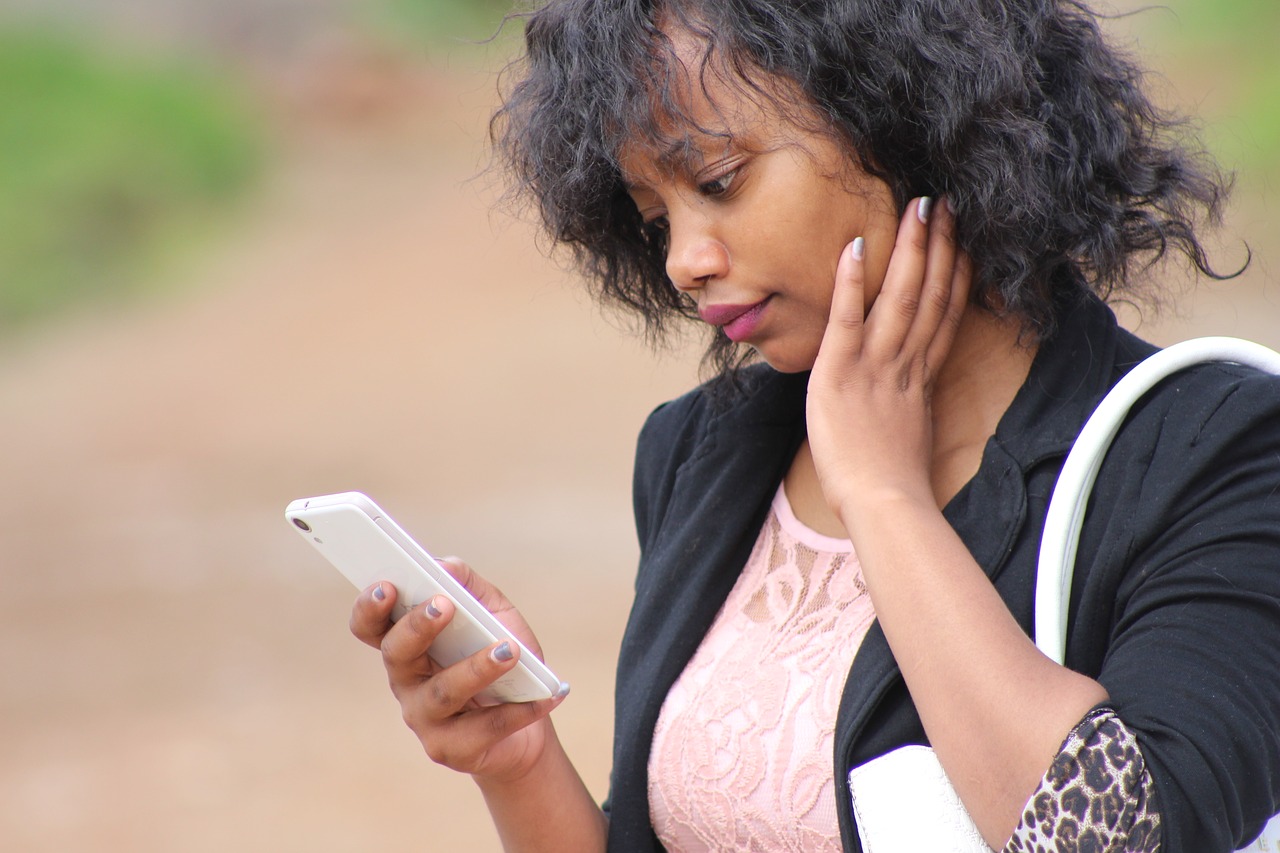ICTs and many other digital technologies have to the potential to transform our society and bring about massive social change through connectivity, access to information, faster communication and automation. So, we are inundated by success stories of digital development, but we need to also understand its failures . This is the first article in a critical series on when well-intended ICTs and online platforms miss the mark in transforming society. This article discusses a study on online gender-based violence in sub-Saharan Africa.
Imagine receiving life-threatening messages from an ex-partner on Facebook, or seeing your Twitter timeline filled with harrowing replies warning of sexual violence. Next, envision showing screenshots of those offensive messages to a local authority, only to hear: “But, did they physically hurt you?,” followed by raucous laughter and accusatory remarks. All of the aforementioned scenarios represent common examples of and reactions to online gender-based violence (GBV) experienced by women around the world. According the International Center for Research Women, online GBV is an “action by one or more people that harms others based on their sexual or gender identity or by enforcing harmful gender norms. This action is carried out using the internet and/or mobile technology and includes stalking, bullying, sexual harassment, defamation, hate speech and exploitation.”1
Creating awareness for and research focused on online GBV is extremely pertinent to reaching Sustainable Development Goal (SDG) 5 2—to achieve gender equality and empower all girls and women—especially in the context of sub-Saharan Africa. Basically, though the internet is recognized for its potential to close the gender equality gap in Africa, it is not immune from the structural and institutional powers of gendered divisions. For instance, Robert Heeks, a digital development scholar, describes cases of women gaining more socioeconomic benefits from ICTs than men in building financial capital, skills and creating social networks and safe communities.3 Yet, women are more likely to experience ICT-related or online GBV more frequently and more intensely than men.4 Why? Instances of online GBV are manifestations of gendered relations from social, cultural, economic and political structures replicated in digital spaces. So, physical GBV often transitions to digital spaces, and online GBV is just as mentally and emotionally debilitating as physical violence 5. Also, men tend to be the perpetrators of online GBV, because the platforms afford anonymity, action-at-a-distance, affordability and automation, which makes it more difficult to identify offenders.6
Studies on online GBV are limited with little to no focus outside of Western context. Therefore, in 2019, POLLICY7, an African-woman led and operated civic research organization, launched the study Alternate Realities, Alternate Internets: African Feminist Research for a Feminist Internet,8 to understand the lived online experiences of women in sub-Saharan Africa and online GBV against women, grounded in African feminist theory. The final report was released last month.
An African Feminist Study on Online GBV
The mixed methods study included 3,306 surveys, interviews and focus groups of women (ages 18-35) living in capital cities across Ethiopia, Kenya, Uganda, Senegal and South Africa. Twenty-eight percent of women reported experiencing online GBV in the form of harassment, offensive name calling and stalking—which is consistent with similar studies carried out by Amnesty International in Western countries. 9 More than half of the respondents (75%) described experiencing mental stress and anxiety from these experiences. Als, some of the incidents were so intense that women working in the public sphere—journalists, activists or politicians—or actively using digital communities for work, coped by leaving their professions, creating limited online profiles or deleting their online profiles.
The respondents experienced more online GBV on Facebook (71.2%). In Kenya, Uganda, South Africa and Senegal both Facebook and WhatsApp were identified as platforms preferred used by abusers. The researchers also found a few key factors driving online abusers to use Facebook and similar platform included, insufficient requirements for verifiable information (i.e., phone number), and limited community guidelines to avert offensive name-calling or trolling. The study group also explained that when abuse reports were submitted to platform administrators there was usually no acknowledgement of the report, removal of the offensive content, or reprimand of the perpetrator. In Kenya, 33% of respondents who submitted abuse reports on Facebook received a reply from administrators, but no action was taken to remove content or the abuser from the platform. POLLICY argues that administrators who show a lack of regard for online abuse reflect patriarchal ideals, which tend to silent women not only in physical spaces but also in digital spaces.10 Should we place more responsibility on social media platforms to address online GBV and protect victims abuse?
Mechanisms to Remedy Online GBV
Regarding common practices for preventing abuse, 66% of women reported that they blocked violators. However, the majority expressed some uncertainty concerning which actions qualify as online GBV, or where to find information on legal process or frameworks to address the issue (29%). Instead of reporting abuses to local authorities, the respondents preferred confiding in a friend, due to their reports being dismissed, minimized, or ridiculed by authorities.
Of the five countries studied, all ratified the International Covenant on Civil and Political Rights (ICCPR), the African Charter on Human and People’s Rights and Convention on the Elimination of Discrimination Against Women (CEDAW), which realize equal rights and equality in the context of sex. While this is remarkable, the conventions do not explicitly state or include language which criminalize abuses on the internet or social media. Alternately, if cyber laws do exist, the application of the law is unfair to women, or the laws do not recognize gender from an intersectional lens, which incorporates race, class, nationality, religion, etc.
Ethiopia and Uganda both have cyber laws that enforce penal codes for online harassment and hate speech. Contrarily, instead of protecting the rights of victims, the law works against them or lacks clear mechanisms to remedy online violence. For instance, in Uganda, in 2018, a victim of revenge porn was arrested and charged under Uganda’s Anti-Pornography Act.11 In contrast, the perpetrators of the crime were not charged. Additionally, in the POLLICY study, a law practitioner from Ethiopia explained the complexities of reporting online GBV: “Even though I am a law practitioner, I don’t know the legal remedy or other available measures. One of the best solutions was to change my contact but still I didn’t want to change it as I use it for work purposes.” 12 Therefore, based on the experiences of women in this study, the best mechanism for was to block their online abusers or inconvenience their digital bodies and freedom by deleting their profiles, changing their digital names or changing profile privacy settings. These acts of “self-protection” prevent women from realizing their full digital freedom, and once more imposes gendered divisions of how women and men access ICTs as well as the representation of physical gendered divisions in digital spaces.
How can we prevent future online GBV?
Overall, POLLICY’s study demonstrates that more African feminist grounded research is needed to bring awareness to online GBV in sub-Saharan Africa. The study explains how the current policy landscape for online GBV lacks the rigor, clear instruments and tangible mechanisms to remedy abuses of online GBV. Also, the study also recommended that future global guides on digital rights and safety should represent the diversity of gender identity and marginalized identities. Review the POLLICY interactive chatbot to review key finding from the full report.
Are African Feminist methodologies and research necessary to reduce online GBV in sub-Saharan Africa? How can women subversively counteract online GBV? How can intergovernmental, regional or national entities create more strategic and actionable policies to discourage perpetrators of online GBV?
Notes:
- ICRW. (2018). Technology-Facilitated GBV: What Is It, and How Do We Measure It? Retrieved from: https://www.icrw.org/publications/technology-facilitated-gender-based-violence-what-is-it-and-how-do-we-measure-it/
- Heeks, R. (2017). Information and Communication Technology for Development (ICT4D). Taylor & Francis Group. 203-204. Retrieved from: https://ebookcentral.proquest.com/lib/malmo/detail.action?docID=4912767
- Ibid
- POLLICY. (2020). Alternate Realities, Alternate Internets: African Feminist Research for a Feminist Internet. Retrieved from: https://ogbv.pollicy.org/report.pdf
- Ibid
- Ibid
- POLLICY. (2020). About Us. Retrieved from: https://pollicy.org/
- POLLICY. (2020). Alternate Realities, Alternate Internets: African Feminist Research for a Feminist Internet. https://ogbv.pollicy.org/
- Ibid
- Ibid, 25
- McCool A. (2018). When her naked selfies were posted online, she thought life couldn’t get worse. Then she was arrested. Retrieved from: https://www.cnn.com/2018/11/10/africa/uganda-pornography-revenge-porn-asequals-africa-intl/index.html


